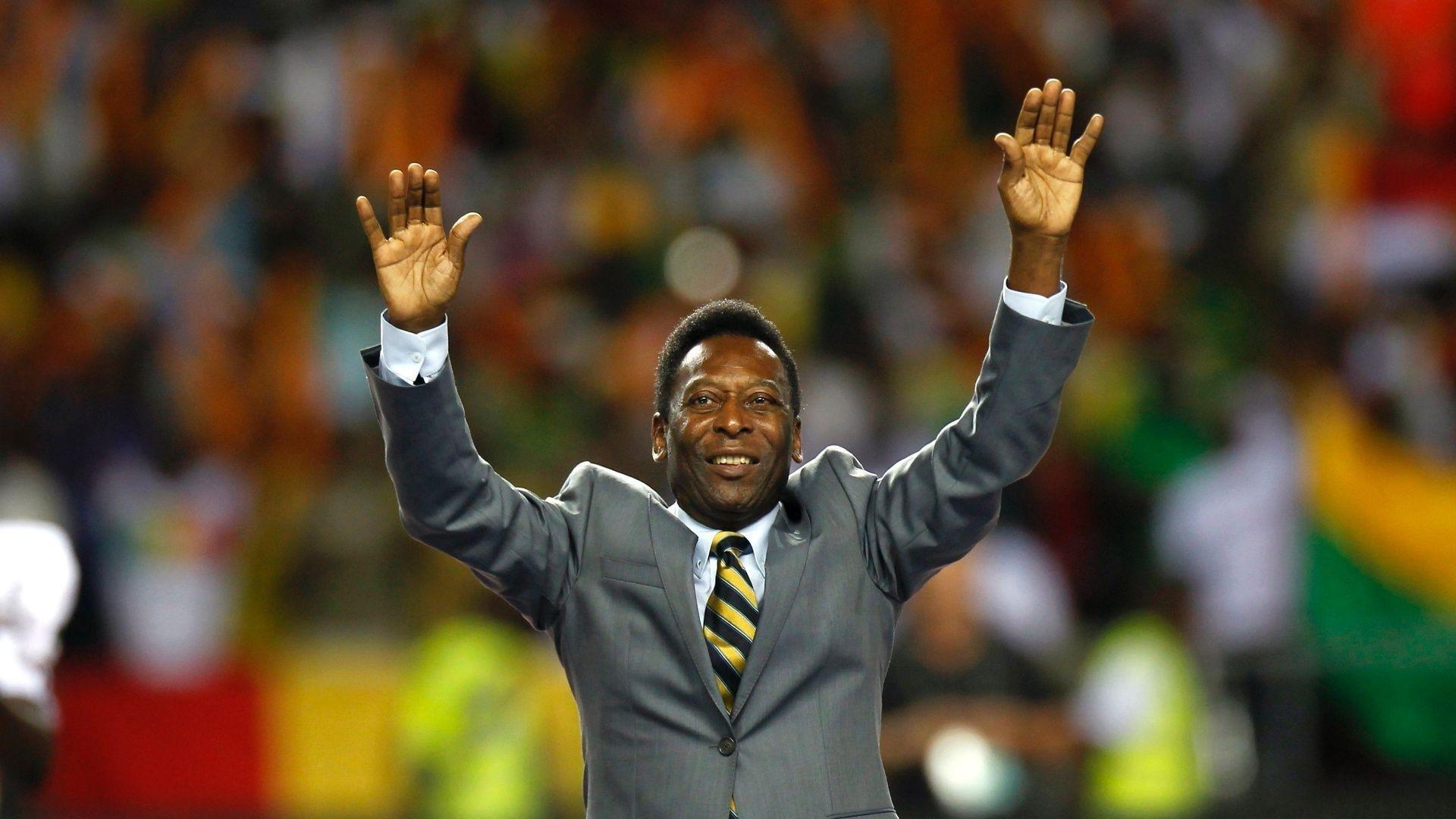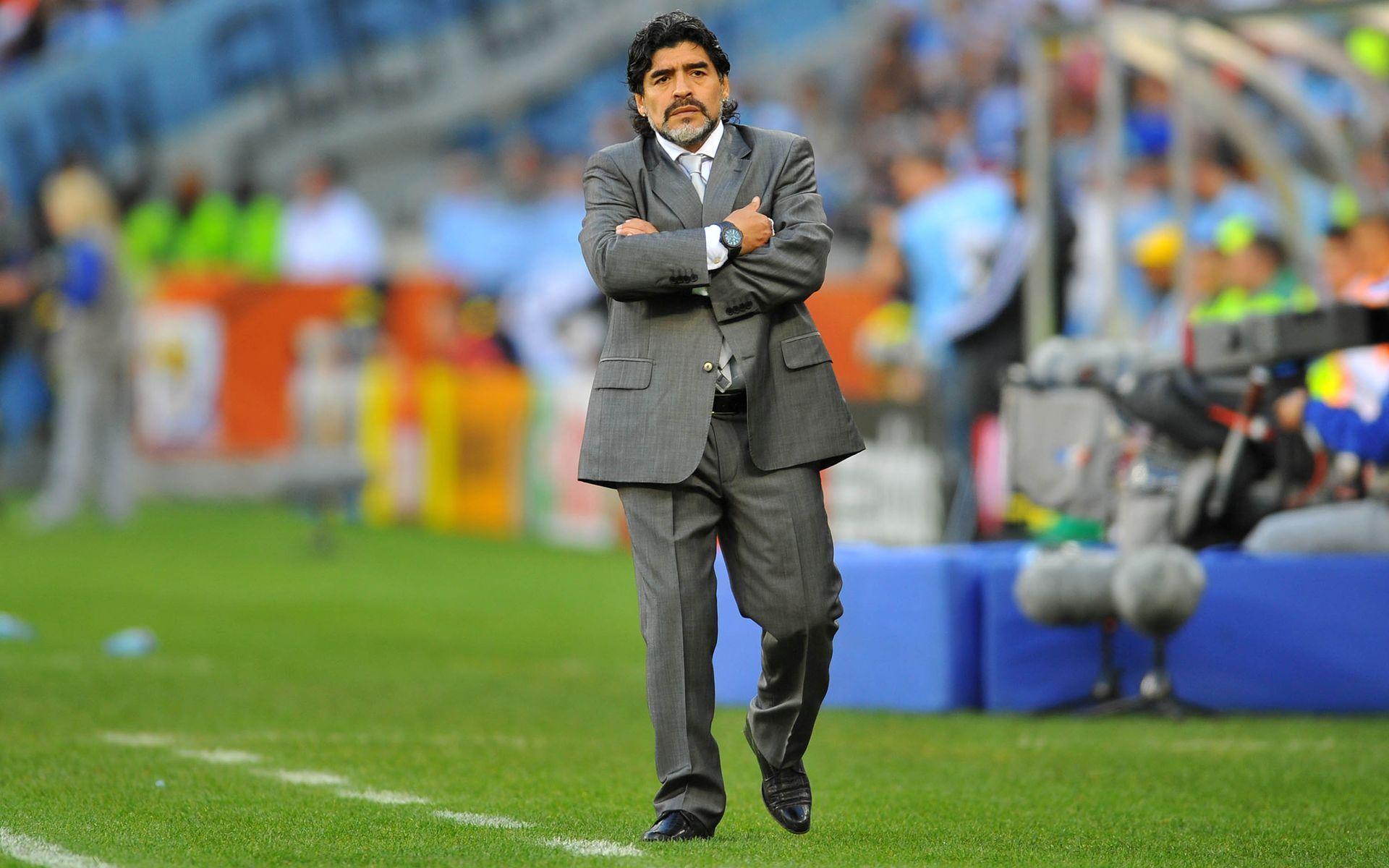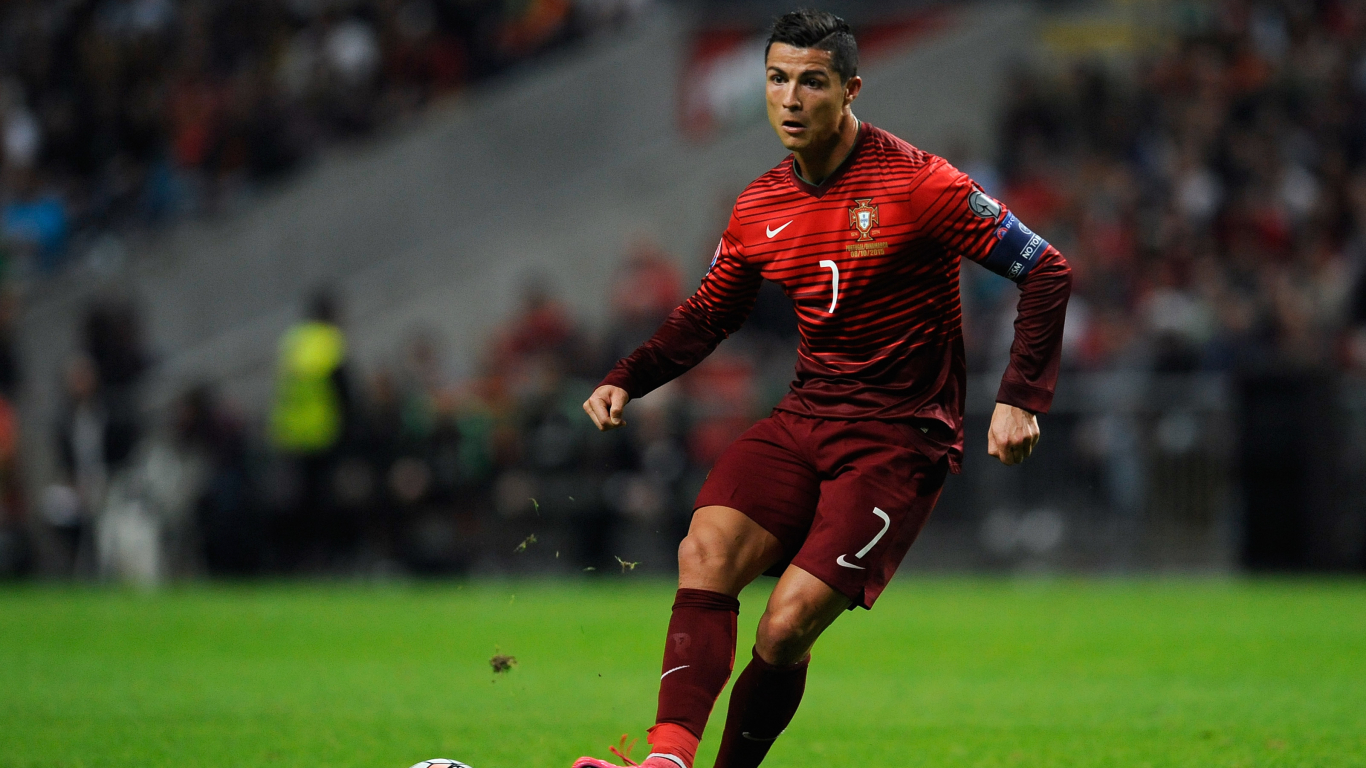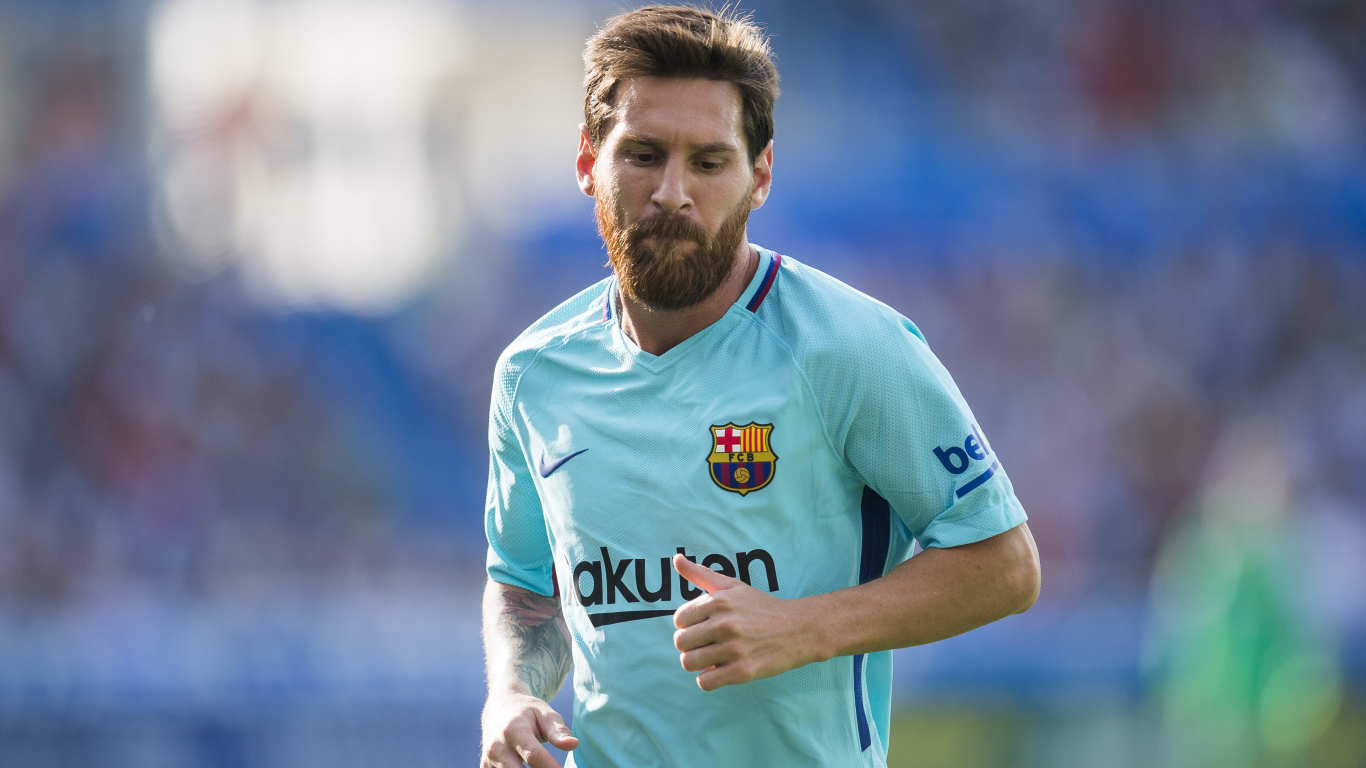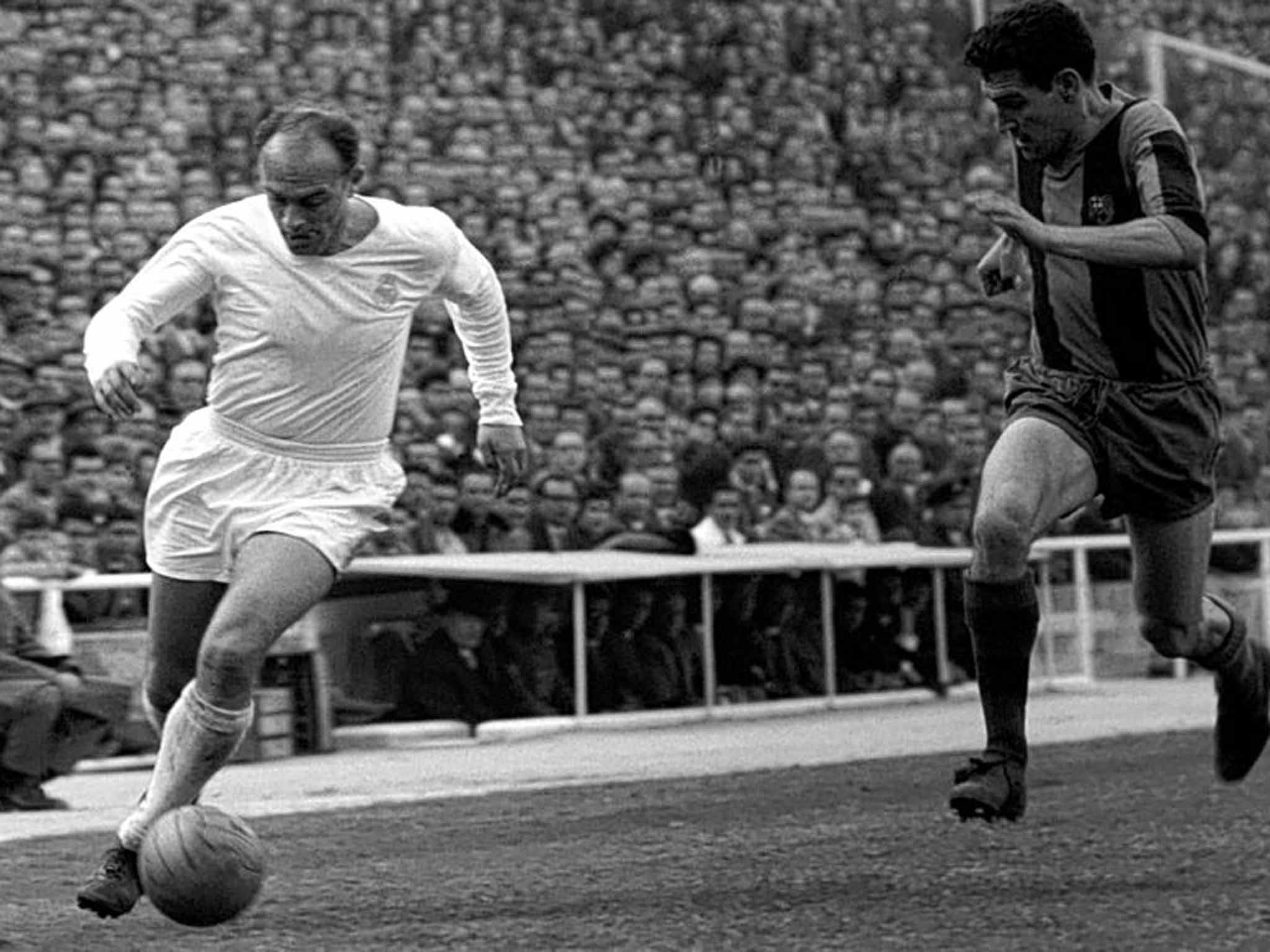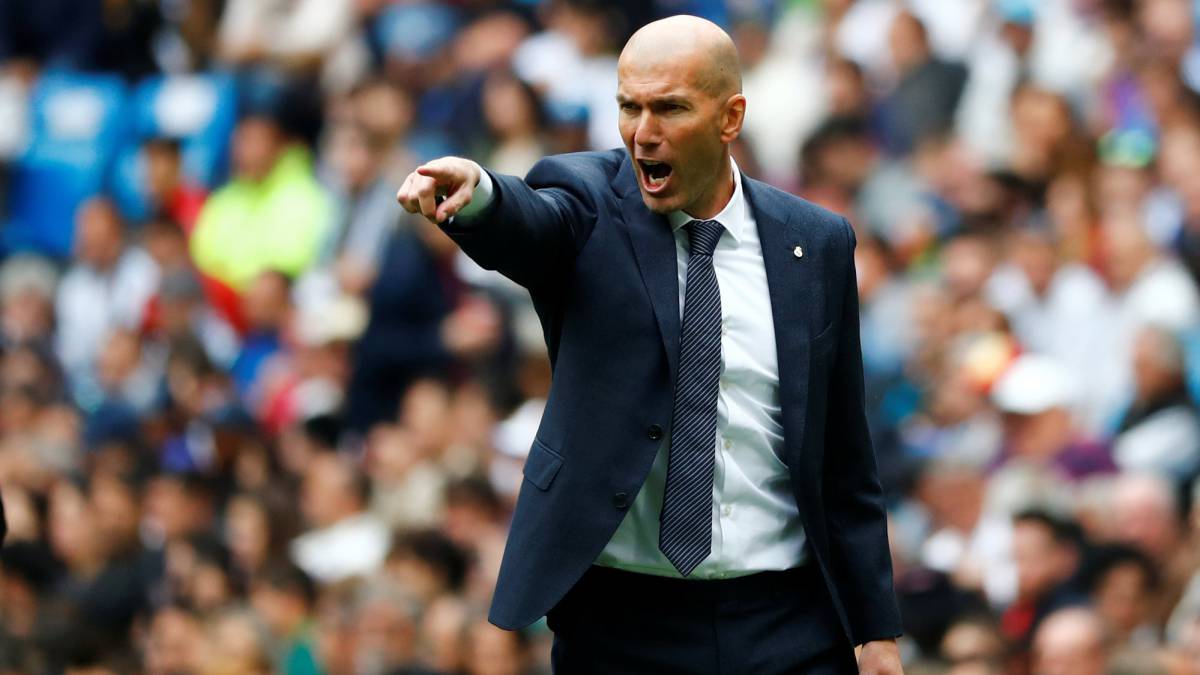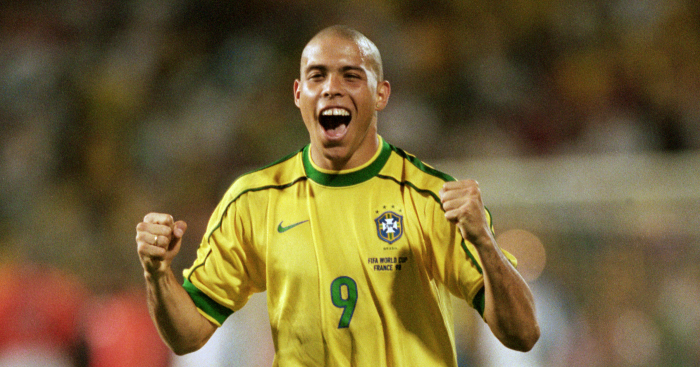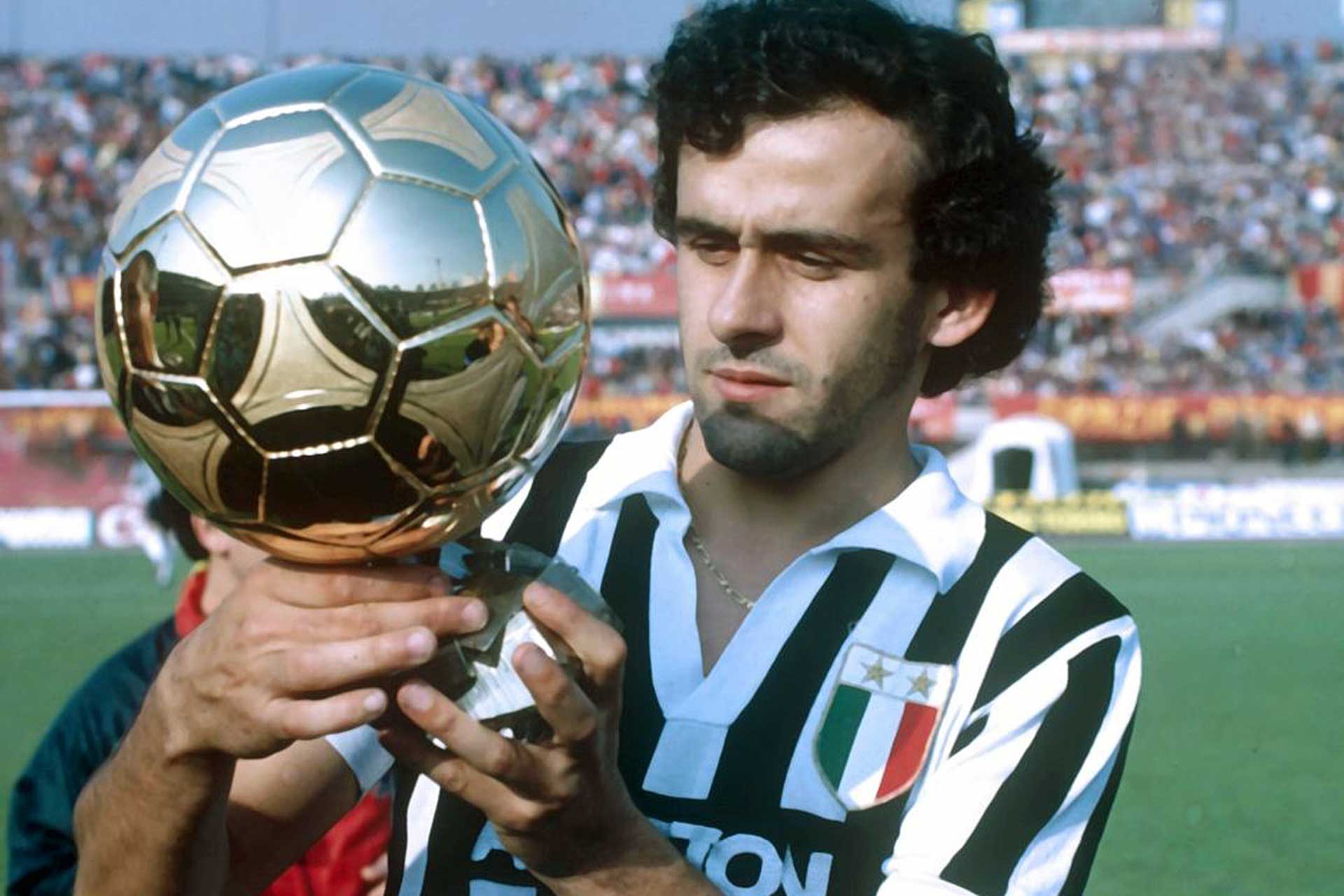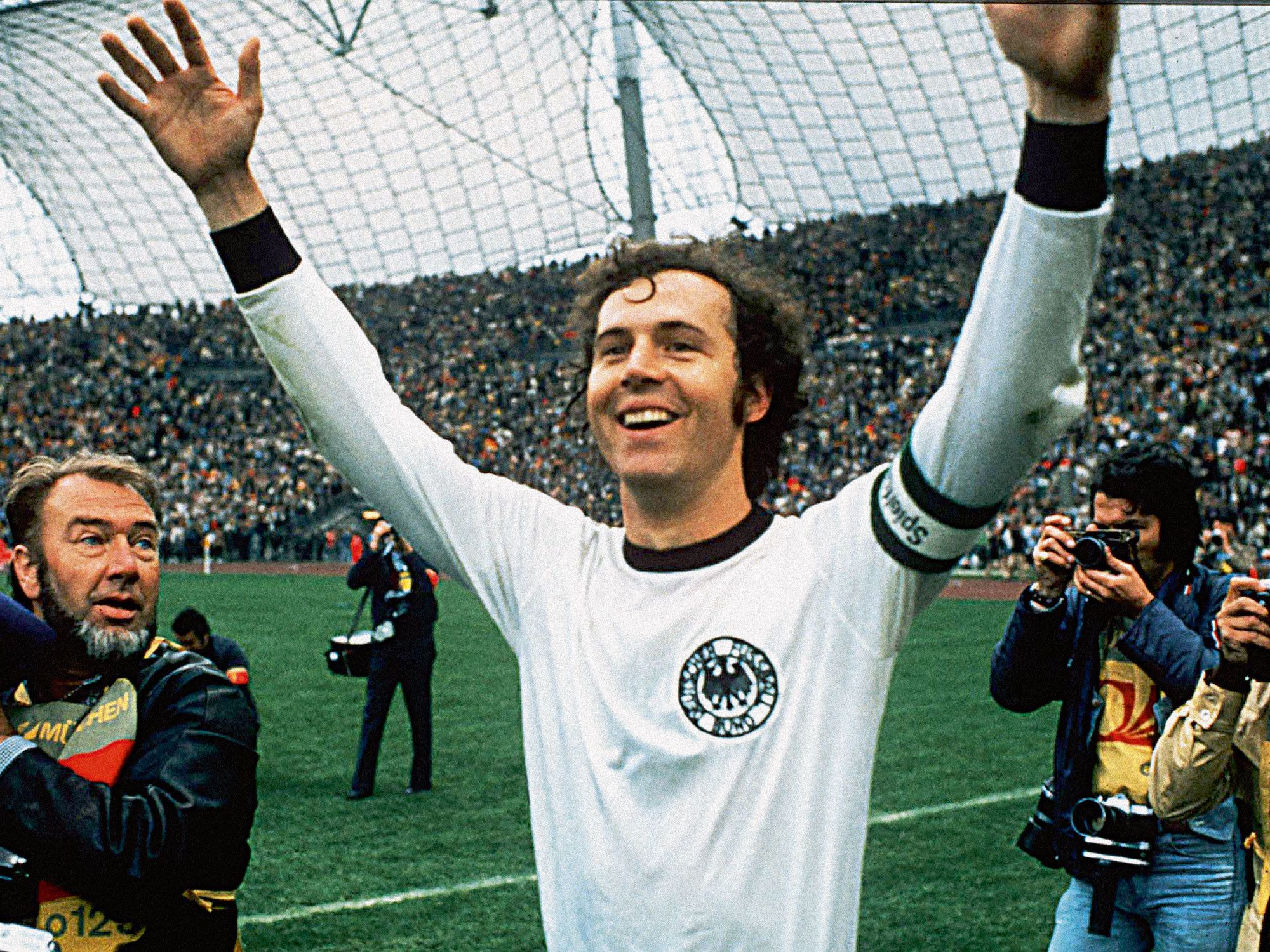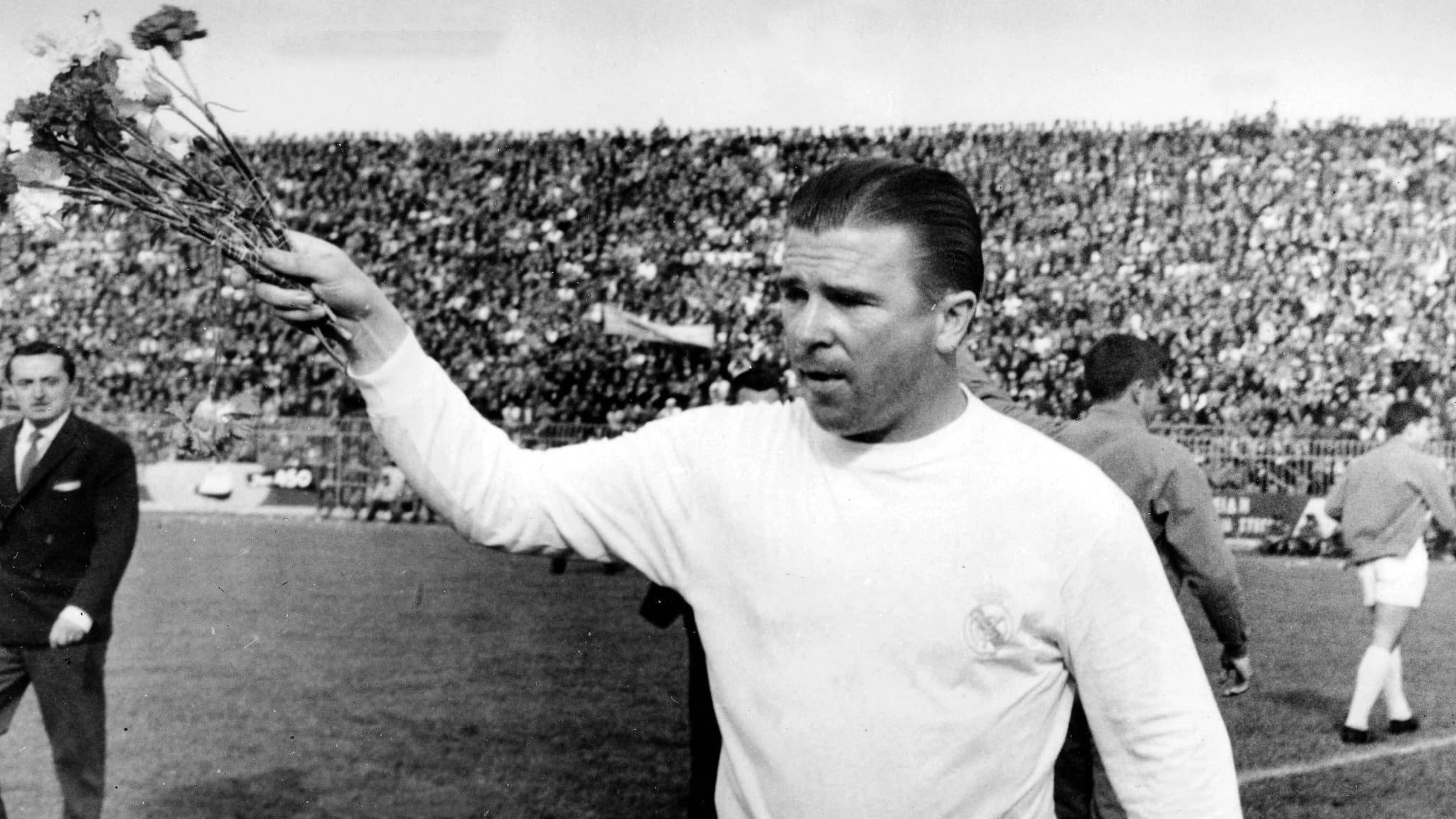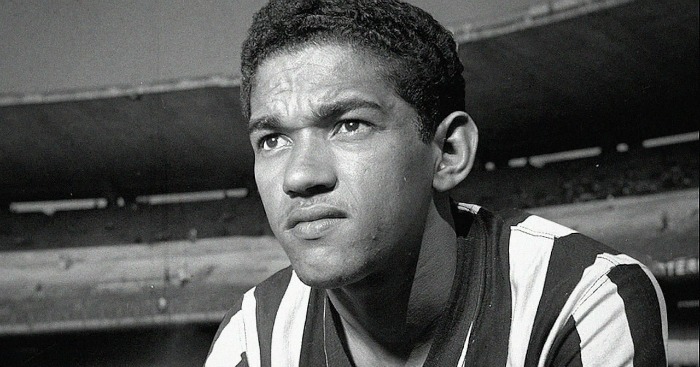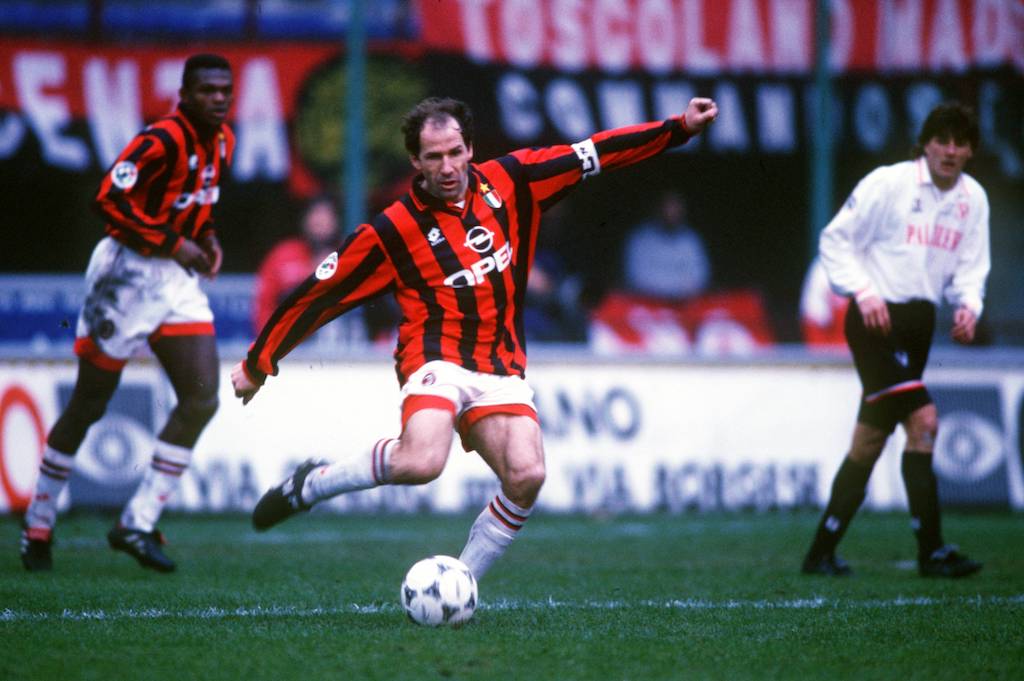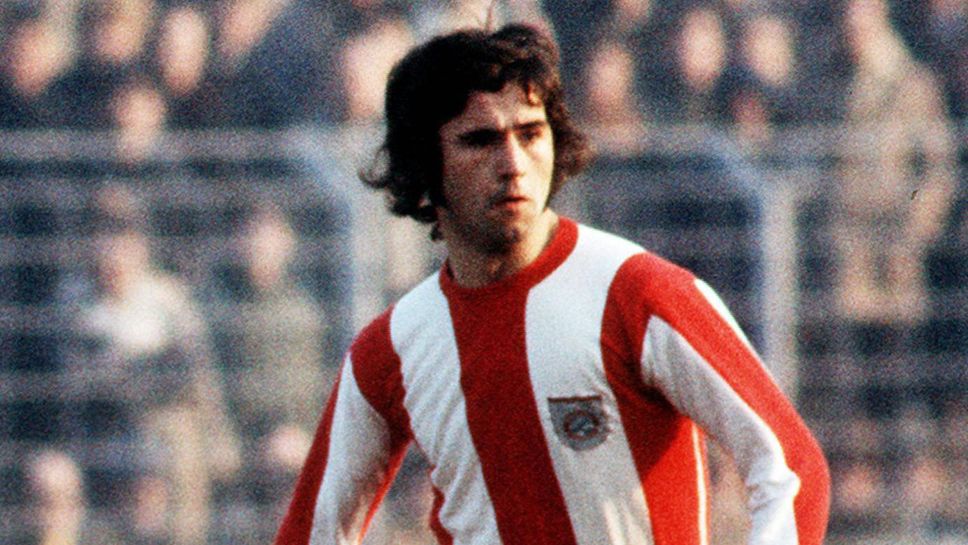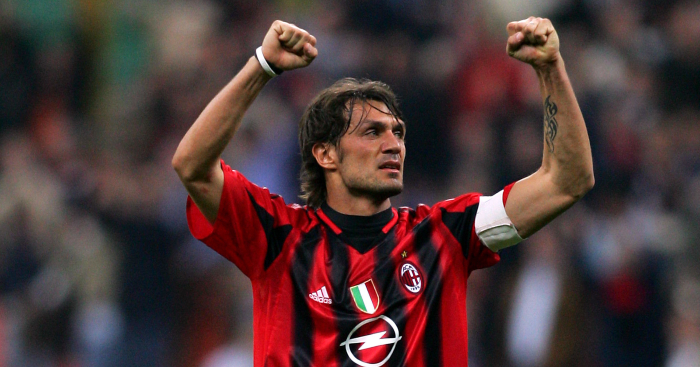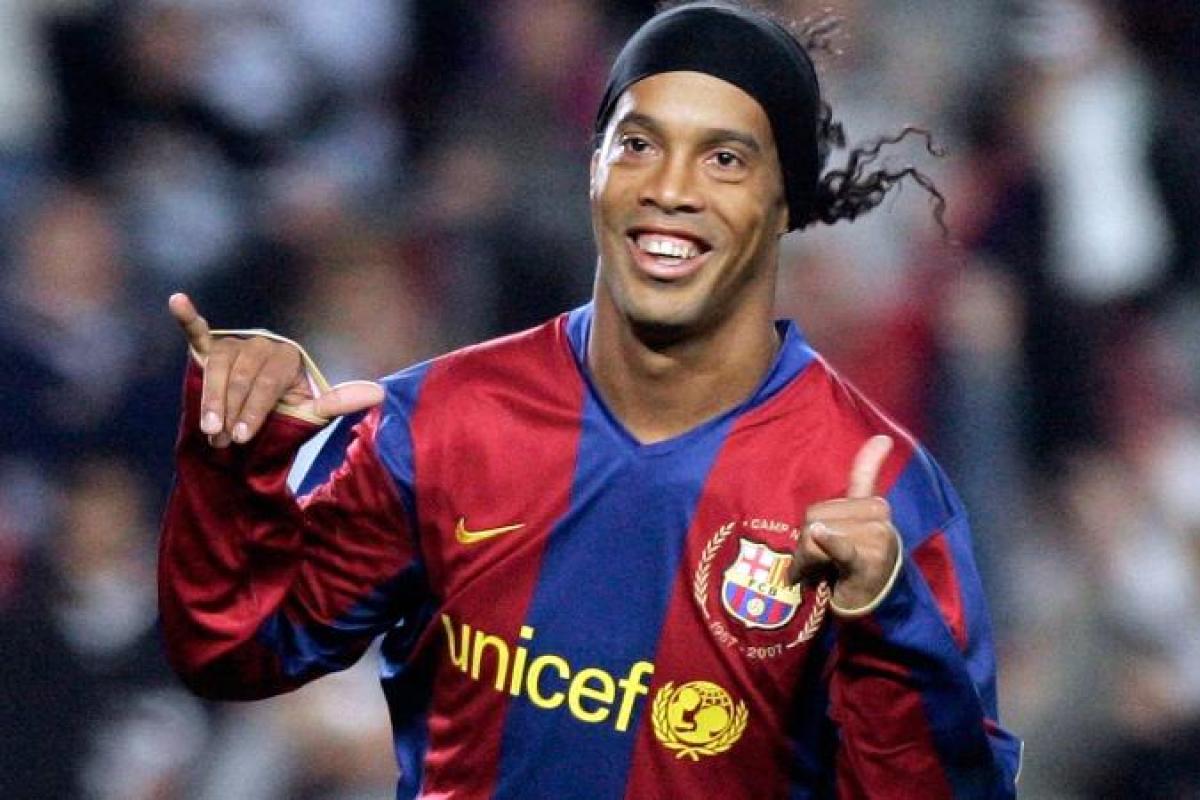Fans, pundits, and players have been hotly debating the topic since the game started, organizing and rearranging hierarchies for every generation of depleted talent. But in addition to the insurmountable subjectivity of the query itself (meaning that each will have their own view, thank you very much), many considerations further confuse the question—the enormous span of time in which professional soccer has been played, the degree of global visibility between, say, Real Madrid and Penarol, and the absence of clear data from the early soccer era. Here is the list of all-time greatest footballers that are ranked according to the stats and their play on the soccer field
1. Pele
immediately scoring the first of 1283 career goals. He was called to the national team within 10 months, and at the age of 17, he scored a hat trick in the semi-finals of the World Cup and twice in the final as Brazil won its first Jules Rimet trophy. The world’s most full footballer ever won another two World Cups in a glittering career that saw him hit a goal for Brazil 77 times in 92 internationals. As Johan Cruyff enthused, “Pele was the only player to overcome the limits of logic.” Highlight Career: On 19 November 1969 at the Maracana, Pele scored his 1,000th penalty goal – while always giving teammates a shot to score, claiming they were a cowardly way to score.”
2. Diego Maradona
Maradona made his debut for Argentinos Juniors 10 days before his 16th birthday. Five years and 115 goals later, he joined the team he’d always hoped to play for, Boca Juniors, helping the Xeneizes to the championship in the one season he spent at Bombonera before leaving for Barcelona after the 1982 World Cup. A turbulent two-year stretch in Catalonia punctuated by sickness and injury – and a mass brawl in his final game – concluded with another record transfer, this time to the Serie A side of Napoli. The Partenopei had never come close to becoming champions of Italy, but Maradona’s brilliance was such that he guided them to two Scudetti and the UEFA Cup in his seven years in Naples. Just as he inspired Napoli to succeed above their normal standard, so he did with Argentina at the 1986 World Cup. In retrospect, and in practice, most of his team-mates were merely adequate. Never before has a man pulled a team to such an important victory by individual genius – and that will never happen again.
3. Cristiano Ronaldo
The highest ever goalscorer in Europe and the five-time winner of the Ballon d’Or, Ronaldo is not yet nearing completion. Along with Lionel Messi, his goalscoring feats have made a joke of those that came before him and he’s set enough career records to fill a book: Real Madrid and Portugal’s all-time top scorer, all-time top scorer in the Champions League and in all five top European leagues – records that he’ll be determined to extend. Sir Alex Ferguson said that he had never coached a more talented player, but talent alone is not what makes Ronaldo deserving of his place on this list. His mental power, concentration, instinctive finishing, dead-ball prowess, and unrivaled focus lift him above and above the vast majority. Career Highlight: In 2008, a towering Ronaldo header helped Manchester United secure the Champions League trophy, leading it to the lifetime dream of being the greatest player in the world.
4. Lionel Messi
Messi is the highest scorer in the history of La Liga, for the National Team of Argentina and for Barcelona. He won a joint record of five Ballons d’Or. To date, he has won no less than 20 international club trophies. This amazing haul is a tribute to Messi’s genius but at the same time a completely unsatisfactory way of attempting to sum up his vastness. He’s brought the scoring to new heights, making a joke of the old ‘one-in-two’ yardstick to determine if the striker is prolific. But, again that’s not enough. His jaw-dropping goals are pale in contrast to the elegance with which he scores them, the mesmerizing talent he shows with unrelenting consistency, and the breathtaking manner he manages the games. Only watch him: then threaten to suggest that everyone was better off. Career highlight: Days after criticizing his aerial playing, Messi led a looping header over Edwin van der Sar that secured Barcelona’s 2-0 win over Manchester United.
5. Alfredo Di Stefano
The Blond Arrow should count Ferenc Puskas, Franz Beckenbauer, and Bobby Charlton among his greatest fans – all of whom claim he was the best all-rounder they’ve ever seen. Di Stefano started with River in his native Buenos Aires, leading them to a few league titles before transferring to Millonarios, Colombia, where he helped the club win three championships. He arrived in Europe with Real Madrid in 1953, at the beginning of the greatest spell in his career. Before leaving the Spanish capital for Espanyol in 1964, he won five European Cups (scoring in all five finals) and eight League championships, bringing a few Ballons d’Or along the way. In 1989 he was awarded the Super Ballon d’Or by France Football, beating Cruyff and Platini. Career highlight: Di Stefano scored an epic 7-3 demolition of Eintracht Frankfurt in the 1960 European Cup Final in Real Madrid.
6. Zinedine Zidane
As creative as any luxury player, but with unwavering quality, ‘Zizou’ was a member of the No.10 throwback and a new middle-class maker. With impeccable vision, style, control, and technique, he shone for the club and the country. When France won the 1998 World Cup, he scored two in the final; when they won the Euro 2000, he scored an extra-time semi-final winner and was named the tournament’s player. His club career was summed up in the Champions League-winning goal in 2002: the other-worldly awareness paired with breathtaking skills. Highlight Career: It was potentially his finest moment against Brazil in the quarter-finals of the World Cup. Many doubted his pick, but Zidane led France to the final, almost single-handedly defeating the Seleção on the way.
7. Ronaldo
Ronaldo was one of the most full and destructive attackers in football history, blisteringly quick and physically brutish but technically superior. His Barcelona solitary season was fantastic. In 51 matches, Brazil scored 47 goals as Catalan champions in both the Copa del Rey and the UEFA Cup, but the league wasn’t a good idea. When he joined them, he was 19. He won the Golden Ball as the best player in the French World Cup in 1998 but was captured before the final sat in the game as France won 3-0. Significant wounds happened during Inter, however, Brazil returned to glory in 2002 for the World Cup. Career highlight: one of the games’ best comeback stories was his brace in the 2002 World Cup Final against Brazil.
8. Michel Platini
Playing between the lines decades before it was de rigor, Platini was a sleek, graceful second striker or an attacker with an eye for a goal and a winning attitude that made him succeed everywhere he played. He was totally delighted at Euro 84, where his nine goals in five matches – including hat tricks against Yugoslavia and Belgium – gave France the trophy on home soil. In the mid-1980s, he won the Ballon d’Or three times while in Juventus and scored the winner in the tragic 1985 European Cup Final against Liverpool. Career highlight: Platini found France’s 3-2 semi-final victory over Portugal at Euro 84 to be the best game he’s ever played. After 119 minutes, he scored a dramatic extra-time winner.
9. Franz Beckenbauer
Although Paolo Maldini was the most complete footballer in the last 30 years, Franz Beckenbauer was the most complete footballer ever. Simply put, whatever you would like a footballer to do, Beckenbauer could-and did-do it. Known as Der Kaiser, Franz Beckenbauer has been the guy behind most of Germany’s football wins over the years… which you certainly already remember are a lot of triumphs. Yeah, he’s one of two defenders to EVER win the Ballon d’Or. Yeah yeah, he won it TWICE, of course.
10. Ferenc Puskas
The Galloping Major enjoyed a career playing for one of the biggest club sides and one of the all-time great national teams the game has ever made. At the club level, he played at the all-winning Real Madrid team of the 1950s, winning three European Cups – four goals in the Hampden Park final versus Frankfurt – and five La Liga championships. Internationally, he glared at the Hungarian team who won Olympic gold at the 1952 Games, shocked England 6-3 at Wembley, and reached the final of the 1954 World Cup, where they were controversially defeated by West Germany in the game that became known as the Bern Miracle. Puskas was awarded the Golden Ball for Best Player of the tournament. Career Highlight: In his only European Cup final at Hampden Park in 1960, Puskas scored four goals as Madrid beat Eintracht Frankfurt 7-3.
11. Garrincha
Following Pele’s injury to Czechoslovakia in the second round of the 1962 World Cup, Brazil’s hopes appeared to have disappeared. Fifteen days later, they maintained their title and Garrincha was given the Golden Ball for the best player, the Golden Boot for the top goal scorer, and was named to the tournament squad. If Pele was the greatest player Brazil ever made, Garrincha – born with a twisted spine and his left leg 6cm longer than his right leg – was his countryman’s favorite. Called Alegria do Povo (Joy of the People), his life was shortened at the age of 49 after a long battle with alcoholism – but he will never be forgotten. Highlight Career: he won the World Cups in 1958 and 1962, but it was at the latter tournament in Chile that he played his best soccer and was the most successful.
12. Franco Baresi
Baresi won six Series A titles – his first at the age of 18 and his last at the age of 36. He captained Arrigo Sacchi’s glorious side in the late ’80s and early ’90s, winning successive European Cups and four years later. At one of the largest football clubs in Europe, he was voted by the fans as their best of the century in 1999. He wore a bracelet of Milan for no less than 15 seasons. His ability to nullify the world’s strongest attackers and switch from defensive to attack immediately attracted comparisons with Franz Beckenbauer. He was perhaps the most important component of the greatest defense ever seen – Baresi, Maldini, Costacurta, and Tassotti. Career highlight: In November 1989, Milan Derby, Baresi played over an hour with a fractured arm after a kick from Inter’s Jurgen Klinsmann. Milan has advanced 3-0.
13. Gerd Muller
The only thing he did was score goals. Muller wasn’t especially quick or physically intimidating, nor was he the best game technician ever seen, but he was gifted with one of those untraceable talents—instinct. He scored an astounding 365 goals in 427 Bundesliga matches, including 40 in 1971/72. He followed that productive season by scoring an amazing 67 goals in 49 games in all competitions the next. He won four Bundesliga titles and won two of Bayern’s three European Cup finals between 1974 and 1976. He was even more lethal at the international level, winning the 1972 European Championship and the World Cup two years later. As he retired from the national team in 1974, he scored 68 goals in 62 matches. Career Highlight: Holland obviously deserved to win the 1974 World Cup, but Muller was the man who scored the only open-game goal in the final to win it for West Germany.
14. Paolo Maldini
The only defensive position that Maldini had barely ever filled was right-back – despite being where he started to play. Having broken into the Milan side at the age of 16 in January 1985, Maldini hung up his boots in May 2009 after more than 1000 club and country matches in his nearly 25-year career. He has won seven Scudetti and a record five European Cup/Champions League trophies. As he retired, Milan took off his No.3 jersey – which will only be worn again if one of his sons plays for the Rossoneri. Maldini was part of not only one but two of the longstanding main defensive partnerships with Franco Baresi and then with Alessandro Nesta. It was his successes alongside the former for an undefeated title-winning campaign, which was undoubtedly at the peak of a phenomenal CV.
15. Ronaldinho
Ronaldinho was the greatest player on the planet in the mid-2000s and regularly made the outspoken look easy. He was twice named FIFA World Player of the Year and guided Barcelona to a few league titles and a Champions League win in the five seasons he spent in Catalonia – all when Real Madrid was at the height of the Galactic era. Possibly perhaps more remarkable than his enviable trophy collection was the grin he carried when playing – a guy with whom football was a game to be loved above all else. Later, he emulated his best days at Atletico Mineiro in their triumphant Copa Libertadores campaign
